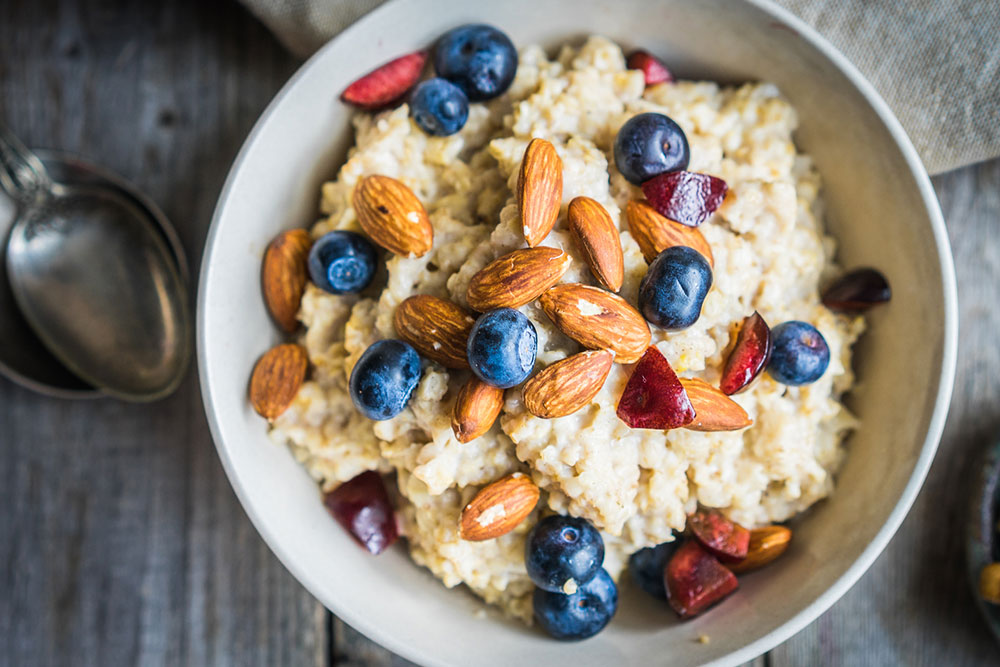
Foods to eat and avoid for eczema
Eczema, also known as atopic dermatitis, is a skin condition that results in itchy, inflamed, and red patches of skin. While eczema can be managed with the help of remedies and topical treatments, one’s food regime plays a significant role in either alleviating or exacerbating its symptoms. Mentioned below are the foods for eczema that can be included in one’s meal plan and the list of eczema foods to avoid to effectively manage this condition.
Foods for eczema: What to include
Fatty fish
Fatty fish like salmon, mackerel, and trout, which are rich in omega-3 fatty acids, are among the best types of foods for eczema for their anti-inflammatory properties. These fats can help reduce inflammation associated with eczema and promote skin health.
Fruits and vegetables
Colorful vegetables and fruits are rich in vitamins, antioxidants, and minerals that support overall skin health. Berries, oranges, spinach, and kale are excellent choices for the same.
Probiotic-rich foods
One cannot skip yogurt, kefir, sauerkraut, and kimchi, when talking about the best types of foods for eczema. The probiotics present in these foods can help one maintain a healthy gut microbiome. A balanced gut may reduce eczema flare-ups, as there is a close link between gut and skin health.
Quercetin-rich foods
Quercetin is a natural antihistamine. It is also an anti-inflammatory compound and is found in foods like onions, apples, and citrus fruits. Including these foods in one’s meal plan may help reduce itching and inflammation.
Oats
Oats can be soothing for eczema-prone skin when used in baths or as an ingredient in skin creams. As a part of one’s meals, they offer fiber and important nutrients.
Turmeric
Curcumin, the active compound found in turmeric, has powerful anti-inflammatory properties. It can help alleviate eczema symptoms when added to one’s meals.
Bone broth
Homemade bone broth is a source of collagen and gelatin, which can support skin health. It’s essential to ensure one is not sensitive to any specific ingredients in the broth.
Healthy fats
One must include sources of healthy fats like avocados, olive oil, and nuts in one’s meal plan. They provide essential fatty acids that aid in maintaining skin moisture and reduce inflammation.
Foods for eczema: What to avoid
Processed foods
Highly processed foods often contain additives, preservatives, and artificial colors that can trigger eczema flare-ups in some individuals. These foods are generally low in nutrients and may contribute to inflammation.
Dairy products
Some people with eczema are sensitive to dairy products, particularly cow’s milk. If one suspects dairy is a trigger, consider dairy alternatives like almond milk or soy milk.
Gluten
Gluten sensitivity or celiac disease can sometimes exacerbate eczema symptoms. Whole grains like rice, quinoa, and gluten-free oats are suitable replacements.
Sugar and sweets
Having excess sugar can lead to inflammation and potentially worsen eczema. Reducing one’s consumption of sugary foods and beverages may help.
Nightshade vegetables
Some individuals with eczema report sensitivities to nightshade vegetables like tomatoes, peppers, and eggplants. One must experiment with eliminating them from one’s food regime if needed.
Nuts and seeds
While these are generally healthy, some people may have allergies or sensitivities to certain nuts and seeds. If one suspects this, they must consult an allergist for testing.
Spices and flavorings
Some spices and flavorings, such as cinnamon and vanilla, can be potential eczema triggers. If one notices a reaction, it is recommended to steer clear of them.
It’s important to note that eczema triggers can vary greatly from person to person. While these are common foods to avoid for many individuals with eczema, it’s essential to identify one’s specific triggers through trial and error. Things like maintaining a food diary and working with a healthcare provider or allergist can help pinpoint which foods worsen one’s eczema symptoms.
Managing eczema through food involves not only knowing which foods to include but also being aware of potential triggers to avoid. A balanced, nutrient-rich meal plan that emphasizes anti-inflammatory and skin-supporting foods can be a valuable part of one’s eczema management plan. However, individualized meal plan strategies should be discussed with a healthcare provider or registered nutritionist, especially if one has specific allergies or sensitivities.




